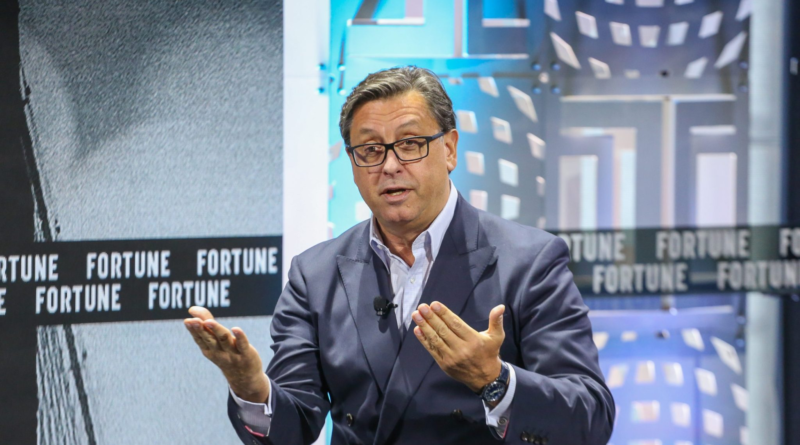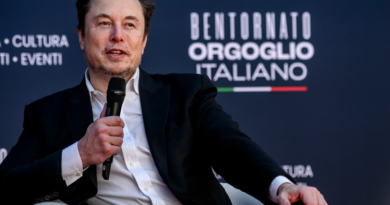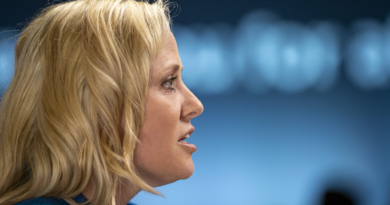CEO of pharma giant Sanofi says businesses should stop ‘AI washing’
AI’s role in health care is rapidly evolving to solve some of the largest problems, including access, drug discovery, and physician burnout. However, Paul Hudson, CEO of Sanofi, one of the world’s leading biopharmaceutical companies, says executives may need to rein themselves in when it comes down to how they describe their AI capabilities.
At Fortune’s Global Forum in New York City Monday, Hudson warned that executives have often exaggerated how AI is used by their companies. “There is a lot of AI washing and CEOs talking about AI projects,” he said, alluding to the tactic of overselling AI’s potential without thinking through how to mitigate its risks.
“You have to have rules of the game,” Hudson said, touting Sanofi’s AI ethical review board, which projects are required to go through. “We need to be a bit more sophisticated in how we calibrate the AI.”
Sanofi, which ranks 297th on the Fortune Global 500, recently announced it would sell a 50% stake of its consumer healthcare business Opella in an effort to focus primarily on innovation within biopharma.
For Hudson, AI’s potential in health care falls into two buckets: “expert AI” and “snackable AI.”
Expert AI refers to how the technology can target structural biology and identify molecules to accelerate drug discovery for a host of diseases.
Snackable AI, in turn, is how the technology can infiltrate the everyday lives of customers in practical ways. Similar to how Waze—a software tool that gives realtime driving directions—can nudge people on whether it’s better to turn right or left, Hudson says snackable AI can do the same when it comes to people’s healthcare decisions.
Hudson estimates 18,000 Sanofi customers use AI in a “snackable format” every day.
At scale, it will help people “make better decisions [and] democratize data to unleash the resources of the company. That’s actually more fun than people realize.”
In the long term, Hudson sees AI as a way to break down the barrier to access health tools and customize them depending on the data—but urges executives to be transparent and distinguish reality from futuristic speculation.
“AI is a huge opportunity and we can’t be deniers, but we do have to manage the risks,” he said.
A newsletter for the boldest, brightest leaders:
CEO Daily is your weekday morning dossier on the news, trends, and chatter business leaders need to know.
Sign up here.




